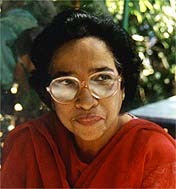“The streets of Vienna are surfaced with culture as the streets of other cities with asphalt,” said Karl Krause. The city is a veritable gallery of Austrian art, with its artistic palaces and theatres designed by master architects and sponsored by royal patrons and wealthy landlords.
But in the midst of all these buildings is the Memorial Against War and Fascism, built in 1988 on the Albertina Platz. It is in memory of the sufferings of Austrians especially Jews in World War II. Three massive pillars in plaster of paris, stand upright in the Square, on which are engraved the bodies of mutilated men and women, with their aggressors standing above, wielding knives and staves. In between the pillars is the cast iron figure of a man scrubbing the floor. He represents the Jews who were made to scrub the streets clean, during that terrible period.
Even before World War I, Baroness Bertha von Suttner of Austria said, “Europe is one. Uniting it is the only way to prevent world catastrophe.” To this end she worked tirelessly, developing the concept of a society which would achieve peace through its people.
During her visit to Paris in 1887, Bertha heard of the International Peace and Arbitration Movement in London. She flew there to join the Movement and soon became its spokesperson, lecturing, writing and involving people all over the world.
Bertha von Suttner was born posthumously in Prague on June 9th, 1843. Her father Count Joseph Franz Kinsky was a Field Marshall and also the chamberlain to Emperor Franz
Joseph I. The Austrian society in which she grew up was seeped in military tradition. As an adult, Bertha opposed war. Her first book, “Lay Down Your Arms” published in 1889, was an indictment of militarism. In her second book “Machine Age” also published in 1889, she foretold the consequences of extreme nationalism and accumulation of arms. Her predictions came true two months after her death on June 21, 1914, with the outbreak of World War I.
Life was not always easy for Bertha. She tried various jobs to support herself. At the age of 30, she became tutor to the four daughters of Baron von Suttner, in Vienna. But she kept her intellectual life alive by reading and studying books on Science, History and Philosophy. She was also a musician.
Falling in love with the scion of the von Suttner family did not meet with the Baron’s approval. So she took off to Paris and worked as a secretary to Alfred Nobel. But after two years she could no more bear the separation from her lover and returned to Vienna. She was secretly married to Arthur Gundacear von Suttner on June 18, 1876, but had to live in Tiflis, Caucasus for nine years because of stern family opposition. The couple could return to Vienna only after reconciliation with the family in 1885.
In 1891, Bertha published a manifesto that led to the formation of the Austrian Peace Society. She was the only lady in a group of males. She also helped establish the German Peace Association and the International Peace Bureau in Geneva.
In 1899, at the first Peace Conference held in the Netherlands, she along with other peaceniks convinced the delegates of the need for a structure to resolve international conflicts. As a result, the Permanent Court of Arbitration came into existence.
Bertha’s friendship with Alfred Nobel began in 1876 and continued till the end of her life. The latter imbibed his pacifist ideas from her. She wrote, “Mr. Nobel and I exchanged several letters. He wrote soulful and intelligent letters but with a melancholic note. He seemed to be unhappy, misanthropic, highly cultured, and to own a deeply philosophical concept of the world.”
Her communications with Nobel are in the archives of the Nobel Foundation in Stockholm.
In 1905, Bertha was the first woman to receive the Nobel Prize for Peace. Today in a world rocked by violence and wars, Baroness Bertha von Suttner, the “Generalissimo of the Peace Movement” is forgotten, and the most influential book of the 19th century “Lay Down Your Arms,” with its distinct ant-military message, lies tucked away in some mouldy archive.
Thursday, January 21, 2010
Subscribe to:
Posts (Atom)






